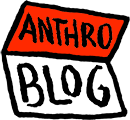Date:
April 29, 2023
09:45 am – 6:00 pm
← Go back
Return
In this moment, our gaze turns to the transformations and new challenges presented to us as we arrive at a “new beginning”— returning to a familiar place that has changed. Where and how can our methods and findings best be used to improve the problems of our time? Long-standing political, sociocultural, and environmental problems persist in familiar and new forms even as new issues emerge, suffering the ongoing impacts of a global pandemic, systemic inequalities, and growing geopolitical instabilities. There has never been a more urgent need to rethink and reuse our conceptual tools to employ the social sciences to find solutions to pressing needs at all levels: local, regional, national, international, and global.
‘Return’ brings with it ideas of nostalgia and loss. It evokes something gone that needs to be retrieved while also calling for new futures to be created and potentialities that were lying dormant but are awakened. ‘Return’ is always a return-to and a return-from– it carries the weight of particular histories and possible trajectories in the interval it describes. Nietzsche wrote about eternal recurrence as a metaphysical system, a cosmological necessity; As a concept it opens ways to understand our present, by looking at how we got there and why. As we return to on-campus events and every day in-person interactions, how does the concept of returning– with its implied recurrences, repetitions, temporalities, and political implications– help us better understand our present moment? This question of what it means to return presents opportunities for integrating theory and practice for greater collaboration between professors, researchers, and professionals.
What sorts of ‘return(s)’ can there be? And what does each allow and/or foreclose? How does reconceptualization of the past best inform our current research practices? What sources and methodological approaches allow researchers to address the subjectivity of time and the interactions between social and institutional temporal regimes?
9:45 | Welcome / Opening Remarks
10:00 – 11:30 | Panel Session #1 – Moderator: Victor Evangelista, MA NSSR Anthropology
Letícia Takeuti, MA NSSR – “Sustainable Future(s), Incessant Development.”
Jack Jiang, PhD NSSR – “Back to Primordial Soup: Kinship at the End-of-Times”
Alaa Saad, PhD Johns Hopkins University – “To What Shall We Return? On Egypt’s Labor Movement Against Privatization”
[10-minute break]
11:40 – 13:00 | Panel Session #2 – Moderator: Caroline Risacher, MA NSSR
Ben Airing, MA NSSR – “Seeking Psilocybin, Ingesting Indigeneity”
Aleksandar Kostić, MA Princeton University – “On Unpredictability of Returns: The Commonalities between Deer Returns in Kyrgyzstan, and Human Returns to their Field Sites”
Charlotte Gagnon-Lewis, PhD University of Ottawa – “Fishing amongst Industrial Ghosts: Wolastoqiyik Sea Urchin Fishing in the St. Lawrence Estuary”
[Lunch break]
13:30 – 15:00 | Panel Session #3 – Moderator: Christopher Thompson, MA NSSR
John Clark, MA NSSR – “The Answer to 1984 is 1776: Sussing Out the Sentiments of the Alt-Right Conspiracy-Sphere”
Isis Gamble, PhD The New School Milano – “Why Pills are White: A Personal Exploration of White Masculinity and Opiate Abuse”
Katy Perry, MA University of Oklahoma – “The Implications of Nostalgia in Cannabis Marketing”
[10-minute break]
15:10 – 16:40 | Panel Session #4 – Moderator: Grace Peacore, MA NSSR
Jacob Liming, PhD UC Berkeley – “Os Retornados: Figures of Return in Postcolonial Portugal”
Christopher Thompson, MA NSSR – “Terror, Desire, Memory, Ethnography: On How to Write a History of Violence”
Miguel Diaz Cervantes, MA NSSR – “Paper Boats for Return: The National Movement for our Disappeared People in Mexico performing on August 30th, 2022.”
Ayodamola Tanimowo Okunseinde, PhD NSSR – “The Return”
17:00 – 19:00 | Closing Remarks and Reception
Call for Papers
Submission Deadline: March 19th, 2023
This conference provides a space for innovative approaches to teaching, research, and creative practices in anthropology and related social sciences. Doing so can foster greater collaboration between different disciplines and subdisciplines, thus creating new synergies for ethically employing anthropological research for social impact.
Art and Multimedia Submissions
Along with panel discussions and paper presentations, we hope to incorporate exhibitions and design experiments, as well as practice-oriented workshops on topics such as open access scholarship. By curating such an experience, we strive to open the space for interventions beyond written theoretical discourse and foster solidarity among participants from different sectors.
Submission Requirements
Those interested in applying should email a short statement explaining your proposal and how it relates to the theme to returnconference23@gmail.com by March 19th, 2023. Please include in the email your full name, preferred email address, professional or academic affiliation, and a current CV or resume. All submissions should include:
- A 300-500 word abstract;
- A 50 word bio;
- Project proposal or workshop proposal;
- And if you are submitting a multi-media or non-text-based proposal, please also include a sample of either the proposed project or your previous work (photographs, video, music, etc.)

Location:
Wolff Conference Room (11th floor)
6 E 16th St
The New School
